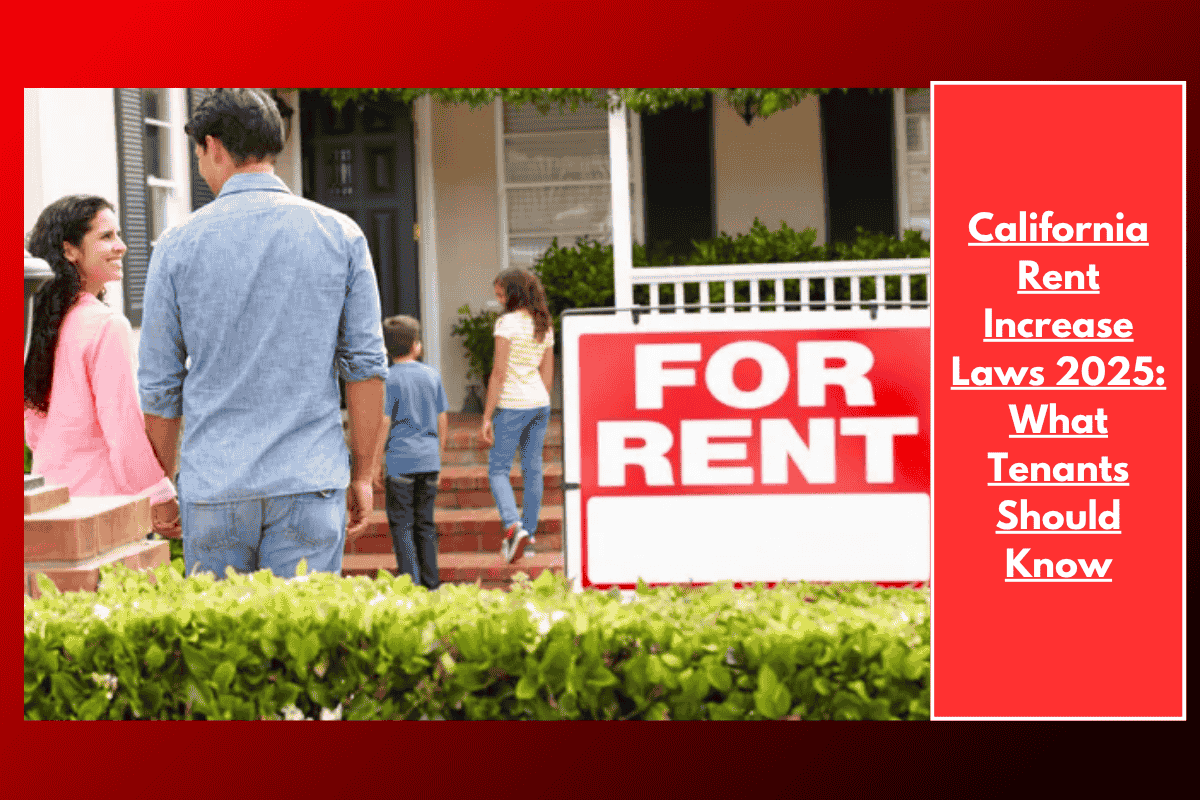As California continues to experience growth in its population and housing market, rent increases remain a critical issue for tenants. In 2025, several important laws and regulations are shaping how much and how often rent can be increased in California. Whether you are a long-time resident or new to renting in the Golden State, it is crucial to understand the rules that govern rent increases. This guide breaks down what tenants need to know about California’s rent increase laws in 2025.
Overview of California Rent Control Laws
California has some of the most tenant-friendly rent control laws in the nation. The state’s rent control policies are designed to provide stability for renters, especially in high-demand areas. In California, two key laws govern rent increases:
California’s Statewide Rent Control (California Civil Code Section 1954.52): This law is part of California’s statewide rent control law, which was established under AB 1482 (also known as the California Rent Control Law of 2019). This law limits how much a landlord can increase rent on many residential properties built before 2005.
Local Rent Control Ordinances: In addition to state laws, many cities and counties have local rent control ordinances that may impose stricter limits on rent increases. Cities like Los Angeles, San Francisco, and Oakland have their own rent control laws, which may offer tenants additional protections.
Statewide Rent Control in 2025
Under California’s statewide rent control law, rent increases for most residential units are limited as follows:
Annual Rent Increases: For most covered properties built before 2005, landlords can increase rent by up to 5% of the current rent or $100 (whichever is higher) per year, with a maximum increase of 10% of the current rent over a two-year period.
Exemptions: Newer properties (built after 2005) are generally exempt from these rent control limits, meaning landlords can raise rents more freely. However, properties that are single-family homes or condos may still be covered by rent control laws if the owner has more than one rental property.
Rent Increase Frequency: California law allows landlords to increase rents no more than twice in a 12-month period for covered properties. The increases must be at least 12 months apart.
Local Rent Control Laws in California
Many cities in California have local rent control ordinances that offer additional protection to tenants. These ordinances can sometimes be stricter than the state law and limit how much rent can be raised annually. Here are a few examples:
Los Angeles: Los Angeles has its own rent control law known as the Los Angeles Rent Stabilization Ordinance. It applies to buildings built before 1978 and limits how much rent can be increased each year. In 2025, the rent increase in LA is capped at 3% of the current rent or $100, whichever is greater.
San Francisco: San Francisco also has its own rent control law, which applies to most residential rental units built before 1979. Rent increases are limited to 60% of the regional Consumer Price Index (CPI) and cannot exceed 2 times per year.
Oakland: Oakland’s rent control law applies to buildings constructed before 1983, and rent increases are limited to 1.2 times the CPI annually.
Rent Increase Notice Requirements
In California, landlords must provide tenants with proper notice before increasing the rent. For month-to-month tenants, the notice requirements are:
For increases of 10% or less: A 30-day notice is required.
For increases of more than 10%: A 60-day notice is required.
For fixed-term leases, the landlord cannot increase rent during the term of the lease unless specifically stated in the lease agreement. Once the lease ends, rent can be increased according to the rules above.
Rent Control Exceptions and Considerations
While California’s rent control laws provide important protections, there are some exceptions and factors that tenants should be aware of:
Luxury Units and Market-Rate Housing: As mentioned earlier, newer properties (those built after 2005) and certain luxury or market-rate housing units are not subject to rent control.
Rent Increases after Renovations: If a landlord makes significant upgrades to a property, they may be allowed to raise the rent higher than usual. However, these increases must still adhere to the rules set by state or local rent control laws.
Rental Units Not Covered by Rent Control: Properties such as single-family homes or condos may be exempt from rent control under certain circumstances, especially if the landlord owns only one property.
COVID-19 Protections: Due to the pandemic, there were temporary rent control measures in place, such as restrictions on evictions and rent increases for certain renters. These measures have largely ended but check with local authorities for any residual protections.
What Tenants Can Do If Their Rent Is Increased
If you feel that your rent increase is unjust or exceeds the limits set by law, you have a few options:
Check the Lease Agreement: Review your lease agreement to see if it contains any clauses about rent increases. If your rent increase violates those terms, you may have grounds to challenge it.
Contact Local Authorities: If you live in a city with its own rent control laws, contact your local rent control board or housing authority to inquire about your rights.
Seek Legal Assistance: If you’re unsure whether the increase is legal or need help fighting an unlawful rent increase, it may be a good idea to contact a tenant’s rights organization or a lawyer.
California’s rent control laws are designed to provide protection for tenants against excessive rent increases, but there are exceptions and different regulations depending on the location and type of property. In 2025, tenants in California need to be aware of both statewide rent control laws and local ordinances, as these may significantly impact how much their rent can increase and how often. If you’re facing a rent increase, be sure to check the regulations in your area and know your rights before taking action.
SOURCES
[1] https://members.aagla.org/news/cpi-update-2025-new-allowable-increases-go-into-effect-under-state-law-ab-1482
[2] https://oag.ca.gov/system/files/media/Know-Your-Rights-Tenants-English.pdf
[3] https://caanet.org/caa-derails-rent-control-measure-as-push-stalls-in-legislature/
[4] https://www.lassd.org/resource/rent-increases/
[5] https://rentpost.com/resources/article/raise-rent-laws-in-california/














